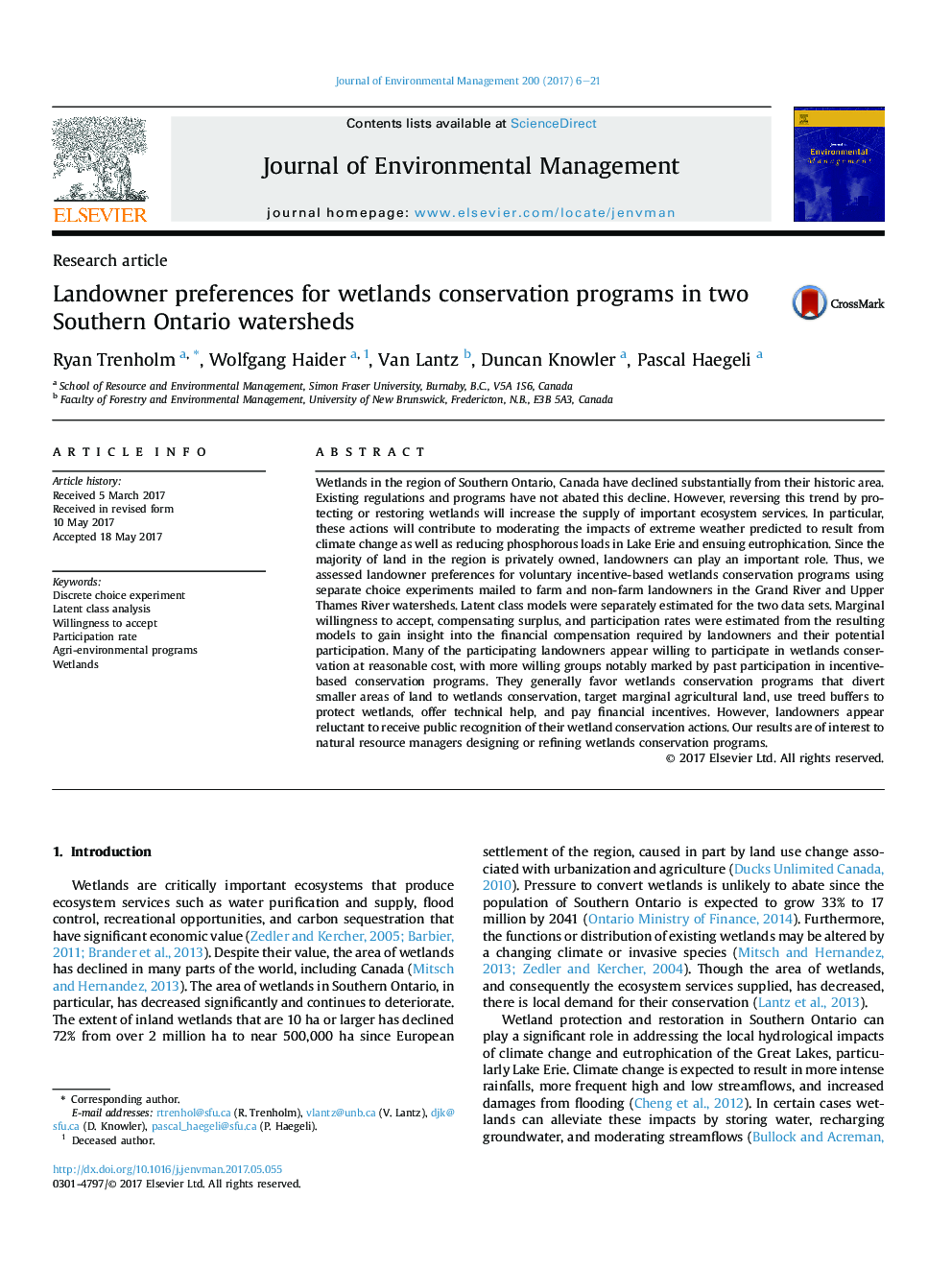| Article ID | Journal | Published Year | Pages | File Type |
|---|---|---|---|---|
| 5116312 | Journal of Environmental Management | 2017 | 16 Pages |
Abstract
Wetlands in the region of Southern Ontario, Canada have declined substantially from their historic area. Existing regulations and programs have not abated this decline. However, reversing this trend by protecting or restoring wetlands will increase the supply of important ecosystem services. In particular, these actions will contribute to moderating the impacts of extreme weather predicted to result from climate change as well as reducing phosphorous loads in Lake Erie and ensuing eutrophication. Since the majority of land in the region is privately owned, landowners can play an important role. Thus, we assessed landowner preferences for voluntary incentive-based wetlands conservation programs using separate choice experiments mailed to farm and non-farm landowners in the Grand River and Upper Thames River watersheds. Latent class models were separately estimated for the two data sets. Marginal willingness to accept, compensating surplus, and participation rates were estimated from the resulting models to gain insight into the financial compensation required by landowners and their potential participation. Many of the participating landowners appear willing to participate in wetlands conservation at reasonable cost, with more willing groups notably marked by past participation in incentive-based conservation programs. They generally favor wetlands conservation programs that divert smaller areas of land to wetlands conservation, target marginal agricultural land, use treed buffers to protect wetlands, offer technical help, and pay financial incentives. However, landowners appear reluctant to receive public recognition of their wetland conservation actions. Our results are of interest to natural resource managers designing or refining wetlands conservation programs.
Keywords
Related Topics
Physical Sciences and Engineering
Energy
Renewable Energy, Sustainability and the Environment
Authors
Ryan Trenholm, Wolfgang Haider, Van Lantz, Duncan Knowler, Pascal Haegeli,
